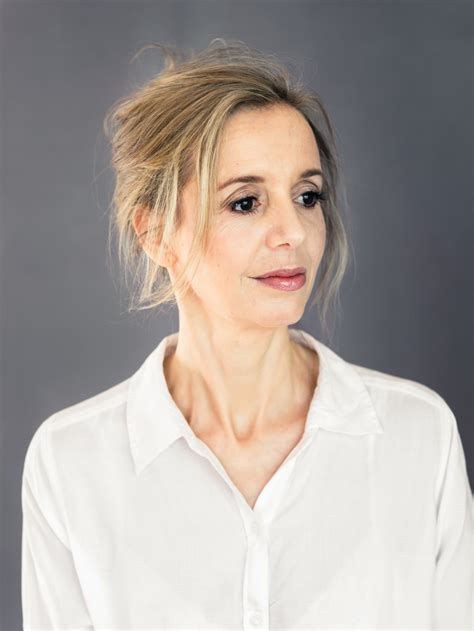A Quote by Marianne Williamson
All of us wish we'd had perfect childhoods, with a mother and father who modeled ideal parental attitudes and taught us to internalize the tenets of self-love. Many of us, however, did not.
Related Quotes
Though we are many, each of us is achingly alone, piercingly alone. Only when we confess our confusion can we remember that he was a gift to us and we did have him. He came to us from the creator, trailing creativity in abundance. Despite the anguish, his life was sheathed in mother love, family love, and survived and did more than that. He thrived with passion and compassion, humor and style. We had him whether we know who he was or did not know, he was ours and we were his.
When I talk about unrequited love, most of you probably think about romantic love, but there are many other kinds of love that are not adequately returned, if they are returned at all. An angry adolescent may not love her mother back as her mother loves her; an abusive father doesn't return the innocent open love of his young child. But grief is the ultimate unrequieted love. However hard and however long we love someone who has died, they can never love us back. At least that is how it feels.
The love of God is not taught. No one has taught us to enjoy the light or to be attached to life more than anything else. And no one has taught us to love the two people who brought us into the world and educated us. Which is all the more reason to believe that we did not learn to love God as a result of outside instruction. In the very nature of every human being has been sown the seed of the ability to love. You and I ought to welcome this seed, cultivate it carefully, nourish it attentively and foster its growth by going to the school of God's commandments with help of His grace.
If I could wish the Kingslayer back in chains I would. You freed him without my knowledge or consent... but what you did, I know you did for love. For Arya and Sansa, and out of grief for Bran and Rickon. Love’s not always wise, I’ve learned. It can lead us to great folly, but we follow our hearts... wherever they take us. Don’t we, Mother?
We are the spirit children of a Heavenly Father. He loved us and He taught us before we were born into this world. He told us that He wished to give us all that He had. To qualify for that gift we had to receive mortal bodies and be tested. Because of those mortal bodies, we would face pain, sickness, and death.
My father took my mother, me, and my brother from Sicily to New York. He got us one-way tickets but booked himself a return flight. He dumped us with my mother's parents, who had just arrived from Italy, and abandoned us. That was 1986. I didn't see or speak to him for another 12 years. That's cruel.
'Every good endowment and every perfect gift is from above, coming down from the Father of lights' (Jms. 1:17). But there is something more. Inspired by the Father, each procession of the Light spreads itself generously toward us, and, in its power to unify, it stirs us by lifting us up. It returns us back to the oneness and deifying simplicity of the Father who gathers us in. For, as the sacred Word says, 'from Him and to Him are all things' (Rom. 11:36).
People need to learn how to respond to each other's hatreds with love - which is what Jesus taught us, which is what Buddha came here to teach us, which is what Muhammad taught us, which is what all of the great spiritual masters who have ever walked among us who live at those highest energies taught us - responding to force with more force will just create more problems.
Sometimes, she said, mostly to herself, I feel I do not know my children... It was a fleeting statement, one I didn't think she'd hold on to; after all, she had birthed us alone, diapered and fed us, helped us with homework, kissed and hugged us, poured her love into us. That she might not actually know us seemed the humblest thing a mother could admit.


































